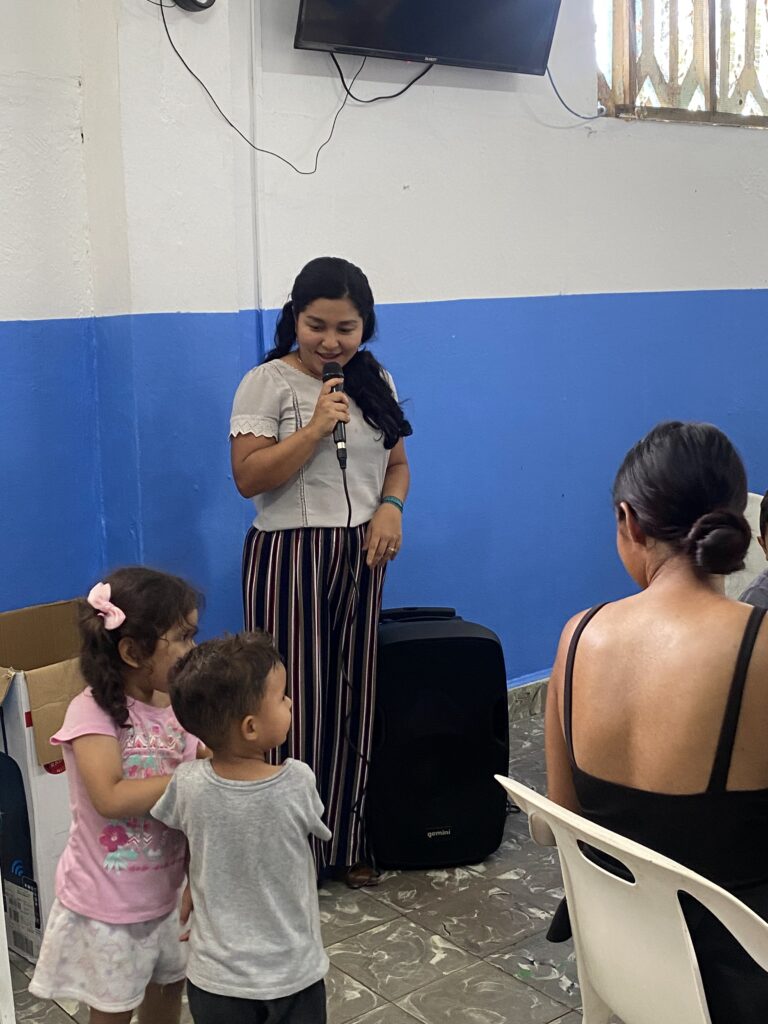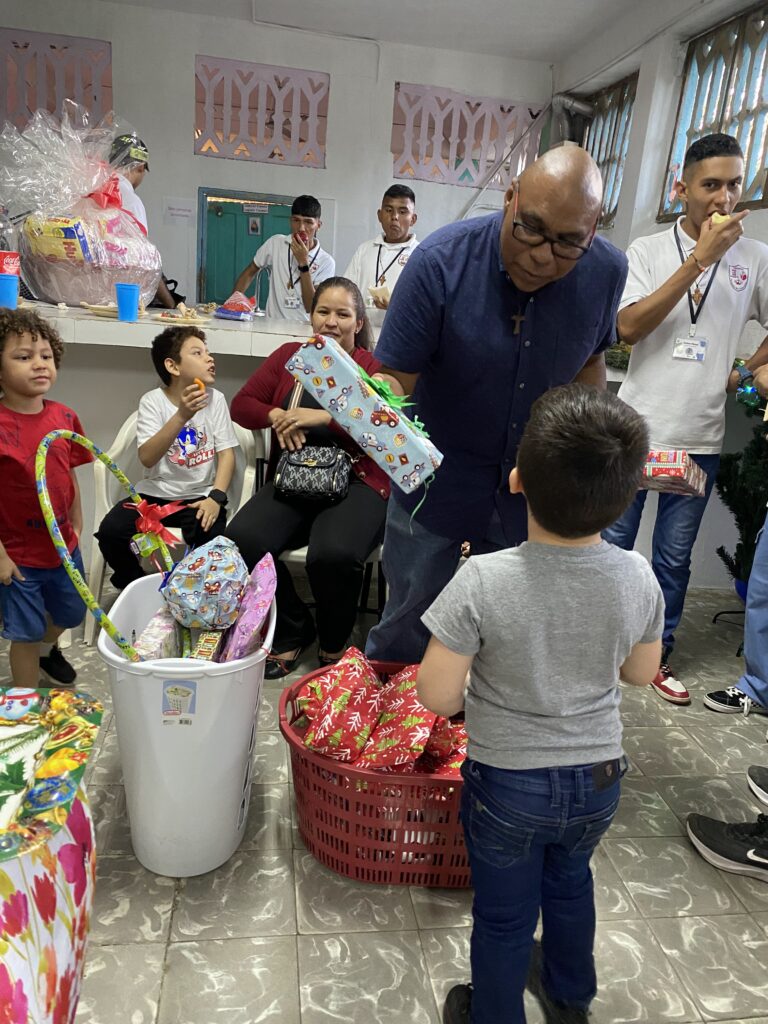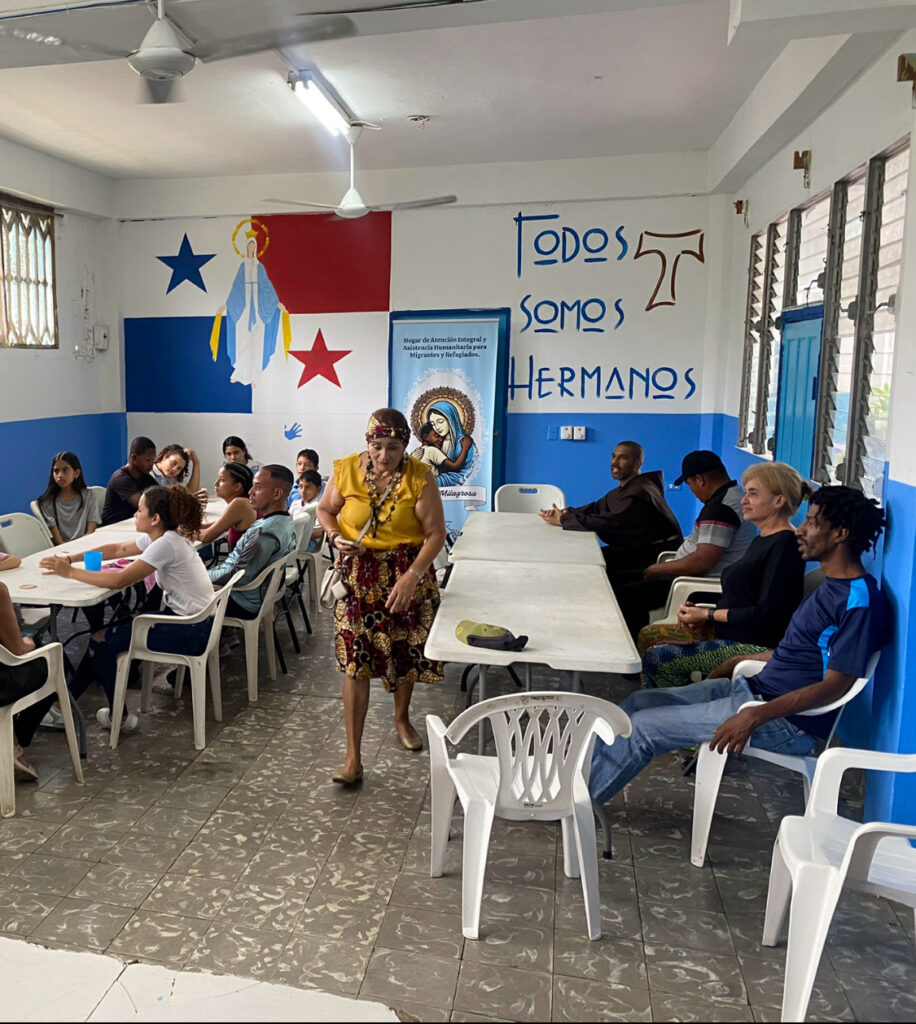A Shelter on the Journey
Along Panama’s migration routes, families arrive exhausted, children on their shoulders, searching for safety after days in the Darién jungle. In the city of David, Franciscans and other Church-based organizations offer a moment of rest, food and accompaniment to those who have nowhere else to turn. For most, this journey is not a choice, but a last resort, driven by conflict, persecution, poverty, and the escalating impacts of climate change.
Ahead of Panama’s Universal Periodic Review (UPR) in November 2025, Franciscans International, together with the Franciscan Network for Migrants – Panama and other partner organizations, submitted a joint alternative report documenting serious human rights violations against migrants. These organizations are part of the Human Mobility Observatory in the Darién and Other Alternative Routes, a collective effort that monitors the situation of people on the move and advocates for their rights. In this context, FI actively participated in the UPR pre-sessions for Panama, promoting the recommendations included in the joint submission.
Danger and Denial of Justice
The Darién Gap, an area covering the south of Panama and part of Colombia, has become a mirror of the Americas’ migration challenges. Between 2020 and 2022 crossings surged nearly 4.000 percent, reaching a historic peak of 520.085 people making the passage in 2023 alone.
Instead of safety, migrants face further dangers: robbery, extortion, kidnapping, disappearances, and sexual violence are all frequent. Doctors without Borders (MSF) reported that they have assisted over 1.300 victims of sexual violence between April 2021 and January 2024. The actual number of victims is likely much higher, as fear and stigma keep many silent.
These risks are even greater for those in already vulnerable situations, particularly women and girls, who have been disproportionately affected by sexual violence.
Access to justice remains elusive. According to Panama’s Ombudsman, 88 percent of crimes committed against migrants in the Darién go unreported due to fear, lack of information, and mistrust. Even when cases are reported, justice is not guaranteed. The case of Jesús Vélez Loor, an Ecuadorian migrant tortured during detention in 2002, illustrates this reality. Despite a 2010 ruling by the Inter-American Court of Human Rights ordering Panama to investigate and provide justice, the case remains unresolved.
From Protection to Criminalization
Instead of strengthening protection systems, Panama has responded with punitive measures. Under “Operation Controlled Flow,” migrants exiting the Darién Gap were confined in Migrant Reception Stations (ERM), which UN experts and regional human rights bodies denounced as de facto detention centers with inhumane conditions. Although these centers were closed in early 2025, no alternative reception or protection system has been established.
In 2024, in an effort to curb the passage of migrants through the Darién, Panama signed an agreement with the United States that eventually helped the Panamanian government deport over 1.500 so-called “irregular” migrants. In February 2025, Panama agreed to receive third-country nationals expelled from the United States, despite the absence of a full and fair assessment of their refugee claims prior to removal. These included, for instance, nationals of Afghanistan, Iran, and China, who had credible fears of persecution in their countries of origin.
The Reverse Flow
In recent months, a new trend has also emerged: thousands of people, blocked from reaching the United States, are now returning southward. This “reverse flow” has left many stuck without resources, documentation, or safe passage.
These systemic failures have had devastating consequences for families and children in transit. “Families arrive exhausted and traumatized, only to be divided. While some can access return programs, others, especially children without valid documents, are left trapped in dangerous conditions,” explained Vivian Cianca, volunteer psychologist at the Franciscan Network for Migrants – Panama.


In February 2025 alone, over 2.000 people attempted to return, many via dangerous maritime routes. Some boats overturned, leaving survivors traumatized and families mourning loved ones.
Franciscan and church networks remain committed to providing assistance. Yet as Vivian noted: “The lack of a comprehensive State response based on human rights, including care for people in return situations, leaves the vast majority in a state of vulnerability.”
Why It Matters
Panama’s migration crisis reflects regional and global patterns: borders are increasingly militarized, migrants face criminalization, and humanitarian organizations encounter growing restrictions. Bilateral agreements to control migration made without transparency and specific human rights monitoring clauses risk undermining international protection standards.
FI and its partners have used their presence at the UN to amplify grassroots voices. Their joint UPR submission urges Panama to:
- Adopt a human rights–based approach to migration.
- End de facto detention and ensure dignified, open shelters.
- Guarantee access to justice, especially for survivors of violence.
- Make asylum accessible, fair, and efficient, including work permits for applicants.
Building on this momentum, FI has facilitated multiple platforms for civil society to present recommendations on behalf of migrants, asylum seekers, and people in transit. These efforts have created opportunities for grassroots organizations and States to engage in constructive dialogue, turning local realities into concrete advocacy at the international level.

